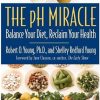A new study has been released by Enviromental Health Perspectives that addresses ways to reduce exposure to BPA and DEHP (bis(2-ethylhexyl) phthalate) by changing our dietary shopping practices. Essentially it evaluated exposure contribution by food packaging (canned foods and foods wrapped in plastic) and tested urine levels of BPA and DEHP metabolites before, during, and after “fresh foods” interventions. There were 20 participants in five families who were studied and they were self reported consumers of canned and plastic packaged foods.
The concern with canned food is the BPA lining used by nearly all canned good manufacturing companies. DEHP is a plastic softener that can be found in plastic that wraps food for protection. These chemicals are known to disrupt hormonal systems in the body leading to developmental and reproductive issues, obesity, and even cancers. And aren’t we fortunate that they both make an appearance in a wide variety of food packaging materials? Ugh…
So did the BPA and DEHP metabolite levels in the study participants decrease when they stopped using canned and plastic wrapped foods and switched to fresh foods? The results of study were quite telling. The levels were greatly reduced and would indicate that food packaging is a front runner in exposing us to these chemicals nasties. You are what you eat right? The intervention reduced concentrations of BPA by 66% and DEHP metabolites by 53-56%. Wow!
What we need to extract from this study is that food packaging is a major source of exposure to BPA and DEHP. Also, we CAN do something about it by making dietary adjustments and changing our food selections.
What Can You Do Personally?
- Opt for frozen, dried, jarred, or fresh foods instead of canned foods and beverages. If you do need to buy canned then buy Eden Foods brand, the only known brand to not use BPA. Campbell soup claims to be eliminating it soon as well.
- Buy loose fruits and veggies, not those wrapped in plastic. Bring your own cloth produce bags to carry them.
- Instead of buying bags of trail mix, beans, grains, rice, etc buy these loose and in bulk. Cloth bags or glass jars can be used to hold them.
- If you do buy food wrapped in plastic, like that yummy Smoked Gouda from Whole Foods, unwrap it and store in a glass refrigerator dish instead.
- Buy more fresh foods from the farmer’s market and less processed foods that need extra packaging.
- If you use baby bottles opt for BPA free ones or even better, glass baby bottles.
- Avoid bottled water, even the large 5 gallon containers. Filter your own tap water and fill reusable bottles.
- Sippy cups should be BPA free, like this EIO Glass Sippy Cup we used.
This recent study is a boon for parents because it provides data that shows us we DO in fact have some power here. We can significantly reduce exposure to some of these chemical in ourselves and in our kids by simply being diligent and shopping smarter.



